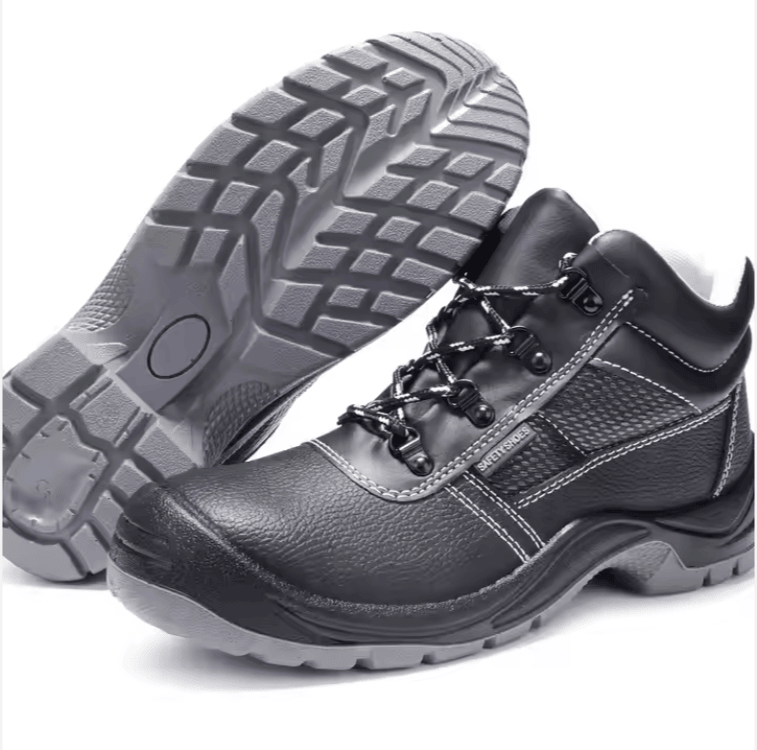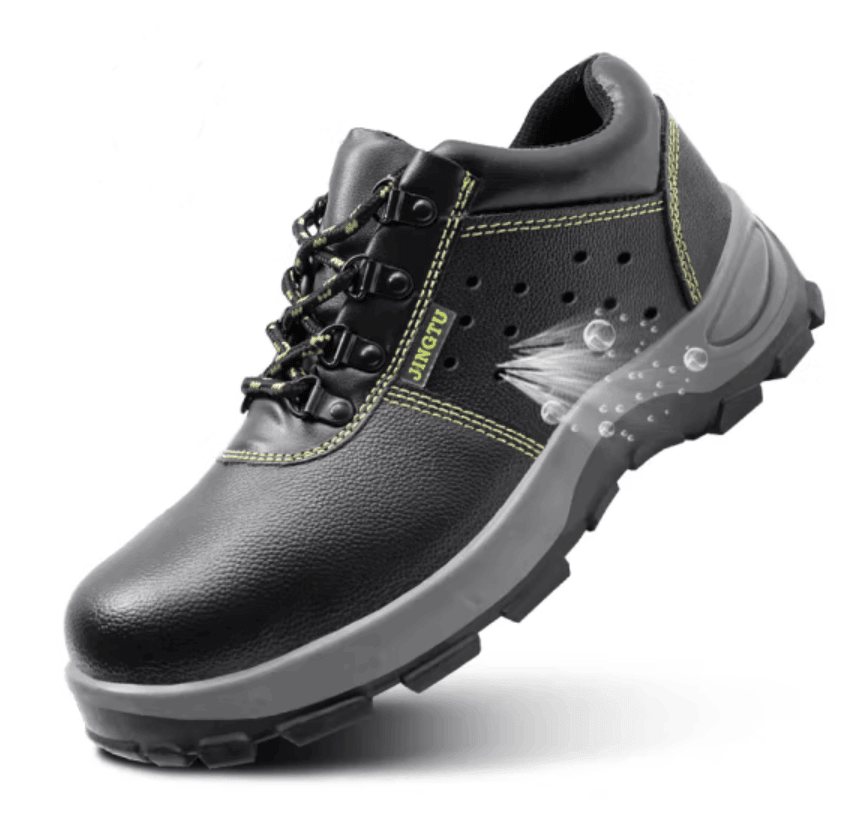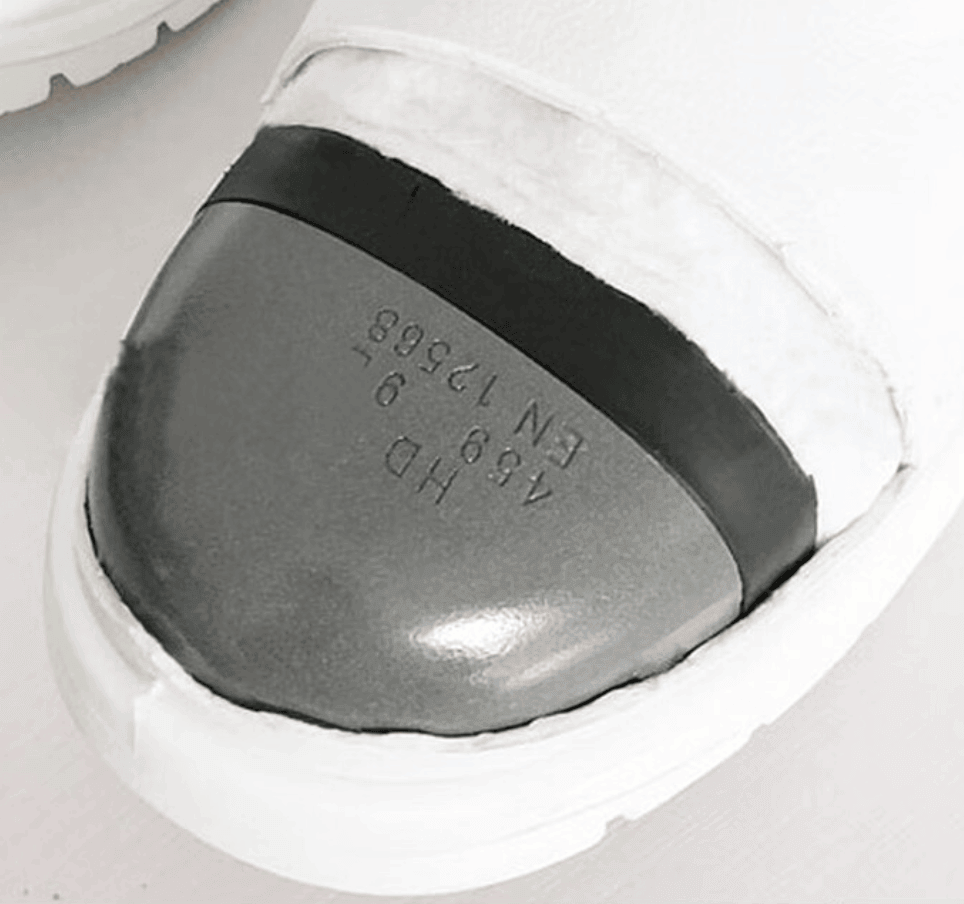ESD Steel Toe Boots
Mens Leather Work Safty Shoes
CERTIFIED SAFETY SHOE | Meets EN ISO 20345 & ASTM F2412-05 & S3 Level Ratings | Toe protection for 200 Joules & Compression resistance for 15000 Newtons
DUAL DENSITY PU/RUBBER SOLE | The outer part of the sole unit is high density compact rubber material with high abrasion & penetration resistance while the midsole is a soft PU providing flexibility and shock absorption. and is lighter in weight.
FULL GRAIN LEATHER & WASHABLE FOOTBED | Full Grain Micro Print Cow Leather. Footbeds are washable and will not result in loss of shape or reduce its performance. The unique open cell structure enables air to go through the insole with 95-100% breathability for maximum ventilation.
SLIP & HEAT & OIL & CHEMICAL RESISTANT | Heat resistant outsole up to 572 F. Oil resistance makes it easier to clean up chemical spills and floods.
WATER REPELLENT CONSTRUCTION | Water resistant printed leather and special lace construction offers enhanced weather protection and resistance from the water absorption.

Detailed and Comprehensive Introduction to ESD Steel Toe Boots
ESD steel toe boots are a type of personal protective equipment (PPE) that combine two crucial safety features:
Electrostatic discharge (ESD) protection, and
Impact resistance (steel toe protection).
These boots are designed for use in environments where electrostatic discharge could damage sensitive electronic components or ignite flammable substances, while also providing foot protection against heavy objects and compression.
What Does “ESD” Mean in Footwear?
Electrostatic Discharge (ESD) refers to the sudden flow of electricity between two charged objects. In workplaces like electronics manufacturing, explosives handling, or semiconductor plants, static buildup on the human body can:
Destroy delicate components
Cause system errors or malfunctions
Create fire or explosion hazards
ESD footwear safely dissipates static charges from the human body to the ground, preventing damage or hazards.
What Are ESD Steel Toe Boots?
These are safety boots that provide:
Electrostatic Discharge Protection: via special insoles, outsoles, and conductive materials that allow static electricity to flow safely to the ground.
Steel Toe Caps: to protect against heavy falling objects, punctures, and compression injuries.
Often also include slip resistance, oil resistance, and abrasion resistance.
How Do They Work?
1. Conductive Sole System
The outsole and midsole are made of conductive or dissipative materials, often carbon-loaded rubber or polyurethane.
These materials channel the electrical charge from the body through the shoe to the floor.
2. ESD Insole
An ESD insole or sock liner enhances the contact between the foot and the conductive path.
Must be worn with ESD-compatible socks or bare feet (no thick insulating socks).
3. Grounding
ESD shoes only function correctly on ESD-safe floors or with ESD matting, ensuring a complete circuit for static discharge.
Compliance & Standards
Look for certifications such as:
EN ISO 20345 (EU safety footwear standard)
ASTM F2413-18 (U.S. safety standard)
ANSI/ESD S20.20 for ESD control
IEC 61340-5-1 for static control
ESD shoes typically have resistance in the range of 10⁶ to 10⁹ ohms to safely dissipate charges without being fully conductive.
Applications
ESD steel toe boots are ideal in:
Electronics manufacturing
Cleanrooms
Automotive assembly
Explosive materials handling
Semiconductor and PCB industries
Warehouses and logistics
How to Choose the Right ESD Steel Toe Boots
| Criteria | Recommendation |
|---|---|
| ESD Certification | Ensure compliance with ANSI/ESD or IEC 61340-5-1 |
| Fit & Comfort | Look for breathable linings, ergonomic support |
| Toe Cap | Confirm ASTM F2413-compliant steel or composite toe |
| Slip Resistance | For workplace safety on slick surfaces |
| ESD Flooring Match | Use only on ESD-safe floors for proper discharge |
| Maintenance | Clean regularly, check resistance levels annually |
Maintenance Tips
Use a shoe tester or resistance tester to verify ESD performance regularly.
Replace insoles or footwear if damaged or contaminated with oil/grease.
Avoid thick insulative socks (e.g., wool) that block contact between foot and insole.
Warnings
ESD boots are not electrically insulating. Do not use them where electrical isolation is needed (e.g., electricians).
Always verify that flooring and grounding are in place and functioning.


